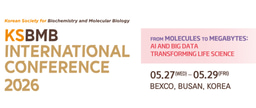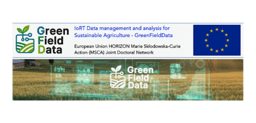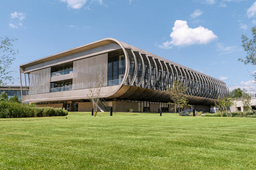Bridging the two worlds: My learning journey from biotech research to commercial potential

Starting a career in biotech research demands more than technical skills; it requires an intentional blend of scientific expertise and commercial savvy. As a wet-lab scientist immersed in translational research, I’ve embraced a mindset of constant learning and growth. Over the past few years, I’ve sought every opportunity to develop the skills needed to not only understand scientific discovery but also translate it into real-world impact. Whether through peer review courses, diving into intellectual property, or consulting with Bennett Coleman & Co. in Mumbai, each experience has enriched my perspective and shaped me into a more holistic scientist. For those early-career researchers ready to bridge the worlds of academia and industry, my journey highlights the rewards of seizing every learning opportunity.
Discovering the intersection of science and commerce
My fascination with biotechnology began in the 8th grade during a lecture that captivated my curiosity about genetics. Determined to pursue this path, I earned a bachelor's degree in Biotechnology, followed by a master’s degree in Biotechnology and Enterprise. During my graduate studies at the University of Manchester, I was fortunate to work with two mentors – Dr. Martin Henery and Dr. Maggy Fostier – whose guidance was instrumental in shaping my understanding of the commercial potential of scientific research. Our project – developing a market strategy for a cardiac allograft rejection sensor – expanded my perspective, teaching me how to navigate the biotech market and dive into complex topics like intellectual property rights. This experience laid a foundation for my career in translational research and sparked my drive to bridge the gap between science and its practical applications.
Following my master’s, I interned and consulted with Bennett Coleman and Co. Ltd (Times Group), where I contributed to designing The GoDaddy Academy’s content flow and creating educational programs for pharmaceutical graduates. This role gave me hands-on experience with market research, skill-gap analysis, and competitor assessments, all within the healthcare and pharmaceutical sectors. These commercial skills proved invaluable, confirming my desire to integrate scientific research with industry applications. This experience also reinforced my decision to pursue a PhD in molecular sciences, equipping me with the practical skills and insights needed to make a global impact in biotechnology.
Translational research: From the lab bench to real-world applications
My aspiration to bridge academic research and commercial opportunities led me to search Europe for a PhD program that aligned with this vision. In December 2019, I joined the prestigious international PhD program at the Max Delbrück Center (MDC) in Berlin, where I now work under the supervision of Prof. Dr. Norbert Hübner. My research focuses on identifying novel microproteins from long non-coding RNAs and exploring their roles in human cardiovascular and metabolic diseases. Collaborating with researchers at Sapporo Medical University in Japan, I’m excited to uncover insights into these microproteins, driven by the potential to translate these findings into therapeutic breakthroughs.
MDC’s international program has also provided numerous platforms to present my research, network with global experts, and immerse myself in the latest advances in RNA translational biology. One highlight was presenting at the "FEBS 5th International Conference on the Long and the Short of Non-Coding RNAs" (a FEBS Advanced Course), where I shared my findings on microproteins and received the Aegean Poster Award – a milestone that strengthened my resolve to drive innovation in this field. Overall, my experience has provided me with a solid foundation in the emerging field of RNA translational biology and microproteins, while also deepening my understanding of the European Patent System through various certifications and collaborations. I’m eager to channel my diverse expertise into future roles, where I can drive meaningful impact by transforming research insights into practical, real-world solutions.
Advice for early-career researchers
To early-career researchers passionate about translating science into real-world impact, remember: every skill you acquire can serve a purpose. You may not realize it immediately, but a broad skill set –from IP law to project management – can open unexpected doors and shape your career in ways you never anticipated. Embrace opportunities for cross-functional collaboration, whether in IP, consulting, or beyond. This journey may be challenging, but the excitement lies in the growth, discovery, and constant evolution. As I’ve learned, the more you develop yourself, the more you discover new directions to take your career, and in science that journey is endlessly rewarding.
Top image of post by M. Richter from Pixabay.





Join the FEBS Network today
Joining the FEBS Network’s molecular life sciences community enables you to access special content on the site, present your profile, 'follow' contributors, 'comment' on and 'like' content, post your own content, and set up a tailored email digest for updates.